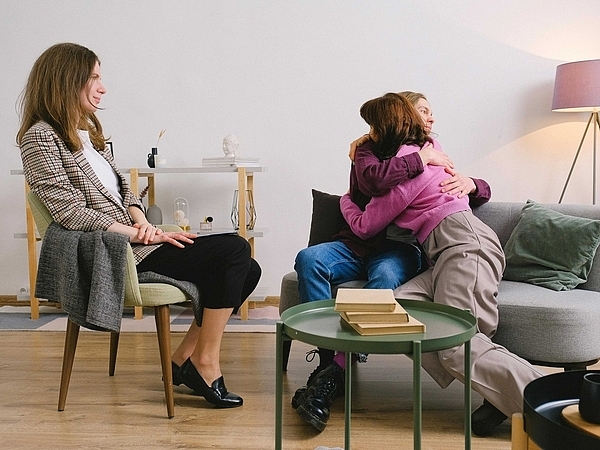When Compulsive Behaviors Interfere with Daily Life
Small habits grow into big problems. A quick check turns into an hour-long ritual. A simple cleaning task becomes a daily must-do. These patterns take over, stealing time and energy from what matters. Soon, basic tasks feel like climbing mountains. Work suffers. Home life gets tense. Friends wonder why you're always late. The worst part? You know it's happening but can't seem to stop.

- Checking locks, doors, or appliances over and over
- Organizing items until it feels “just right”
- Washing hands until skin cracks
- Counting steps, tiles, or actions in a set order
- Saving every receipt, box, or magazine
- Repeating silent prayers or phrases to keep anxiety at bay
These actions don’t bring relief. They pile on stress. The urge to repeat, check, or clean never really fades. Instead, it grows stronger, especially when life gets hectic. The cycle tightens its grip. For many, the only way out is with help from our anxiety treatment specialists who see the patterns and know how to break them.
When Habits Cross the Line
Everyone has routines. But when routines start running the day, something’s off. A morning checklist turns into a marathon. Leaving the house takes twice as long. Family members get frustrated. Friends stop calling. Work deadlines slip. The line between “just being careful” and “can’t stop” gets blurry fast.
People in Katy often hide these struggles. Shame and embarrassment keep them quiet. But the signs are clear:
- Tasks that should take minutes drag on for hours
- Arguments over clutter or unfinished chores
- Missed appointments and late arrivals
- Relationships that feel tense or distant
These aren’t quirks. They’re signals. When daily life starts to revolve around rituals, it’s time to look at compulsive disorder treatment in Katy. The right support can help untangle these patterns before they take over completely.
What Compulsions Really Do
Compulsions don’t solve problems. They create new ones. The urge to check, clean, or repeat comes from a need to feel safe. But the relief never lasts. Instead, the anxiety comes back stronger. The cycle repeats. People lose sleep. They skip meals. They avoid social events. Life shrinks to fit the rituals.
Here’s what happens:
- Work suffers. Focus slips. Projects stall.
- Family life gets tense. Arguments flare up over routines and clutter.
- Friendships fade. Invitations stop coming.
- Physical health declines. Skin gets raw from washing. Muscles ache from tension.
These patterns don’t just affect the person struggling. They ripple out, touching everyone nearby. That’s why our family counseling services matter. We help everyone understand what’s happening and how to support real change.
Why Anxiety Fuels the Cycle
Anxiety and compulsions go hand in hand. The mind looks for certainty. The body craves relief. Compulsive actions promise both, but deliver neither. Instead, they feed the anxiety. The more someone tries to control their world, the more out of control they feel.
Stressful events make things worse. A job change, a move, a breakup. Suddenly, the rituals ramp up. The brain latches onto anything that feels predictable. But the comfort is an illusion. The cycle tightens. That’s where depression and anxiety treatment steps in. With the right approach, it’s possible to break the link between stress and compulsive action.
Real Steps Toward Change
Getting better takes smart moves, not just trying harder. Our Katy therapists know what works. We use tested methods - CBT breaks down big problems, exposure work builds confidence step by step. Change happens slowly, but it sticks.
The steps that make a difference:
- Pick one small win at a time
- Note what works without beating yourself up
- Face the hard stuff bit by bit
- Build better daily habits
- Get your people on your side
Therapists don’t just treat symptoms. They help people understand what drives the cycle. They teach practical skills for handling stress, uncertainty, and setbacks. With the right support, change sticks. Life opens up again. Therapeutic approaches can also strengthen relationships strained by years of rituals and avoidance.
Start Your Recovery Process Today
Focus Family Counseling provides specialized support for residents struggling with compulsive behaviors in Katy. Call us at 346-482-7730 or contact us to schedule your first session.
‹ Back







